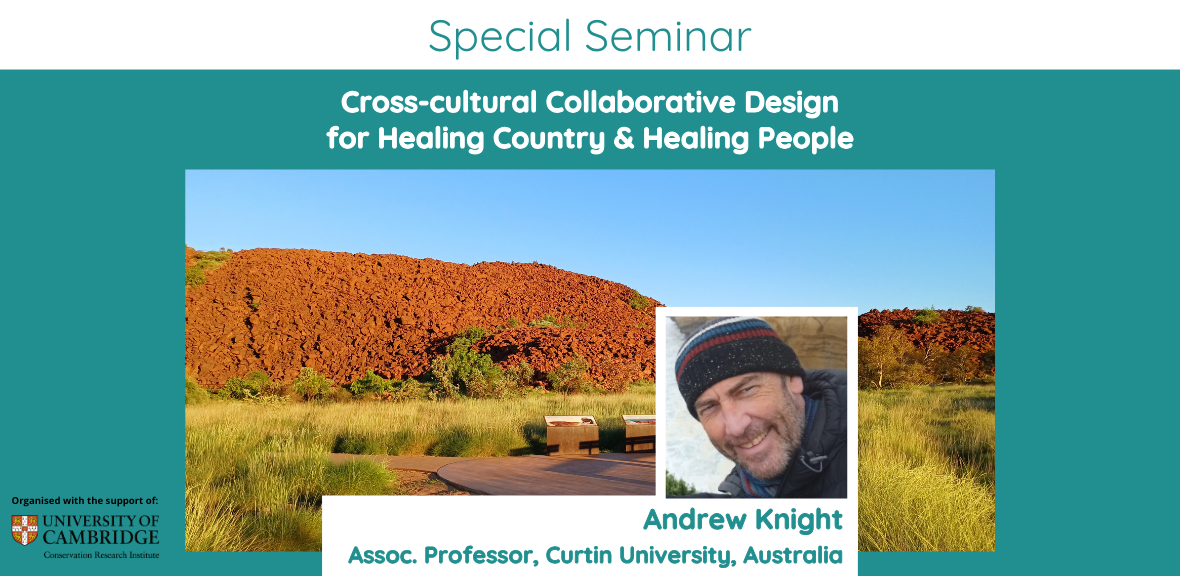
Cross-cultural Collaborative Design for Healing Country and Healing People
Dr Andrew Knight, Associate Professor, Curtin University, Australia
Please click here to receive Zoom link on the day of the seminar.
Abstract
The inclusion of First Peoples in the conservation and restoration of landscapes is increasingly recognised as not only a basic human right, but a key to effective, equitable, ethical and cost-efficient natural resource management. The First Peoples of the continent now referred to as Australia proactively managed landscapes for tens of thousands of years. These management activities manifest a complex collective ‘way of being’ melding Ancestral knowledge; Songlines extending across the entire continent; astronomy; agricultural practices; artefact construction; kinship structures; and individual’s communal responsibilities to Country. This ‘way of being’ with Country was marginalised with the colonisation Australia, and cost First Peoples their health and well-being, and rights to exercise Cultural responsibilities. Reinstating First Peoples ‘ways of being’ with Country in a post-colonial society requires new approaches for designing, implementing, evaluating and improving natural resource management at the landscape-scale that places First Peoples knowledge at the centre of decision-making. Cross-cultural Collaborative Design is an approach developed to surface the Voices of First Peoples in Australia and empower them to lead natural resource management of Country that transforms the dominant reductionist, techno-fix ‘solutions’ paradigm towards complex, values-driven and culturally-sensitive approaches that fuse First Peoples, colonial and others worldviews, values, methodologies and tools for ethical and sustainable management of Country. An operational model for enacting Cross-cultural Collaborative Design through PhD research projects has been developed, and is in the process of being trialled in several sites across the Country of the Noongar People who are the Traditional Custodians of the Global Biodiversity Hotspot in the South West Australia Ecoregion of Western Australia. This seminar presents an overview of the approach Cross-cultural Collaborative Design through several case studies where it has begun to be trialled.
Biography:
Andrew was raised on the Country of the Kuring-gai Traditional Custodians near the Muogamarra Nature Reserve on the northern fringe of Sydney, Australia. Since 1995, he has worked in conservation planning and research with government agencies in New South Wales and Western Australia, and has held positions at the University of Stellenbosch in South Africa, Imperial College London, and most recently Curtin University in Perth, Australia. Andrew’s current collaborations support First Peoples groups, and other rights-holders and stakeholders, to collectively design, implement, evaluate and improve the ways in which they make decisions for the common good, mostly across Country of the Noongar People, Traditional Custodians of the Global Biodiversity Hotspot in the South West Australia Ecoregion of Western Australia. He is Co-lead of Biocultural Futures, a group employing cross-cultural collaborative design to promote Healthy Country and Healthy People; an Executive Member of the Australian Research Council’s Industrial Training Centre for Healing Country at Curtin University; and is the Editor-in-Chief of Ecological Management & Restoration, a journal of the Ecological Society of Australia.
